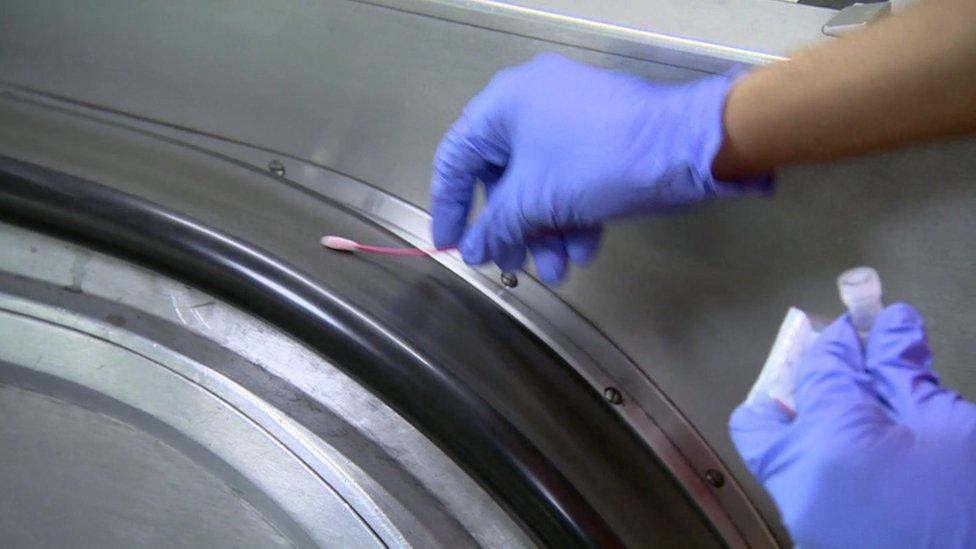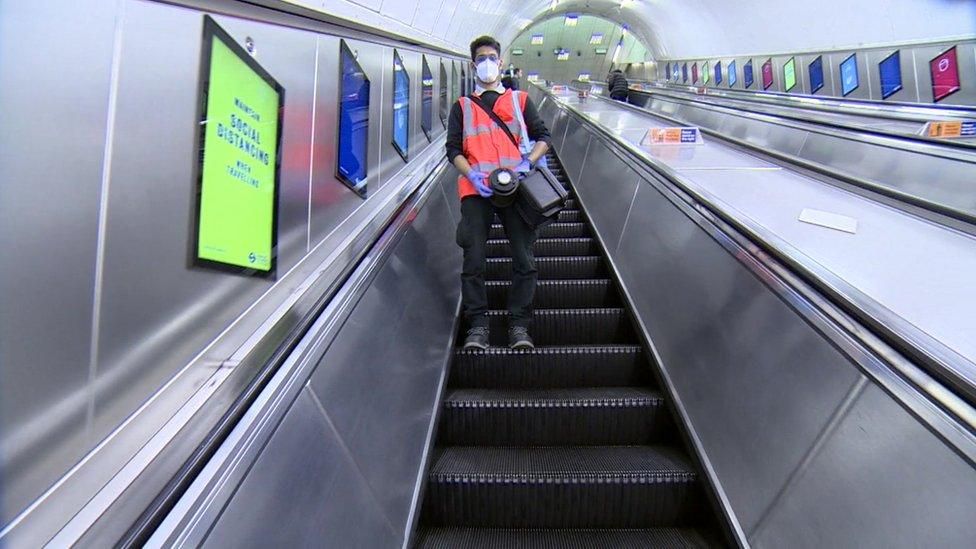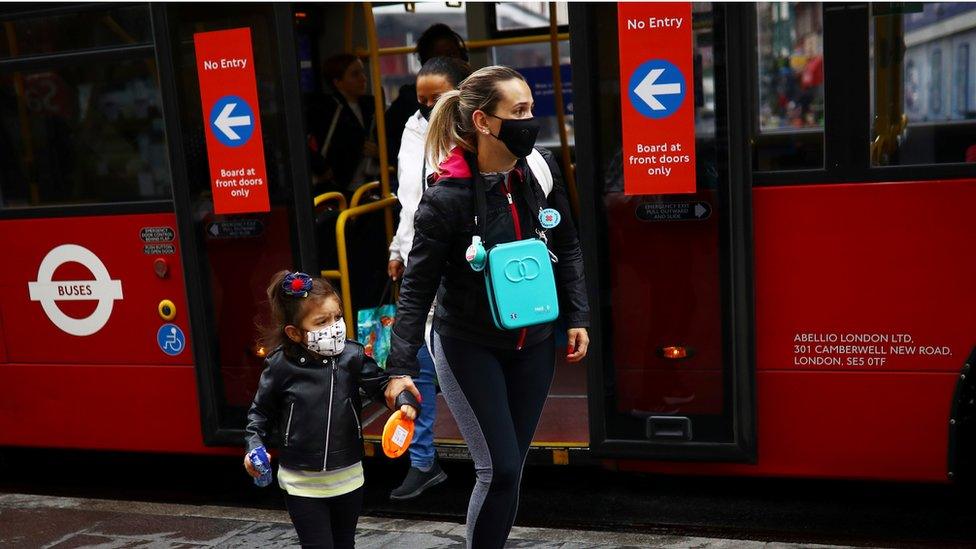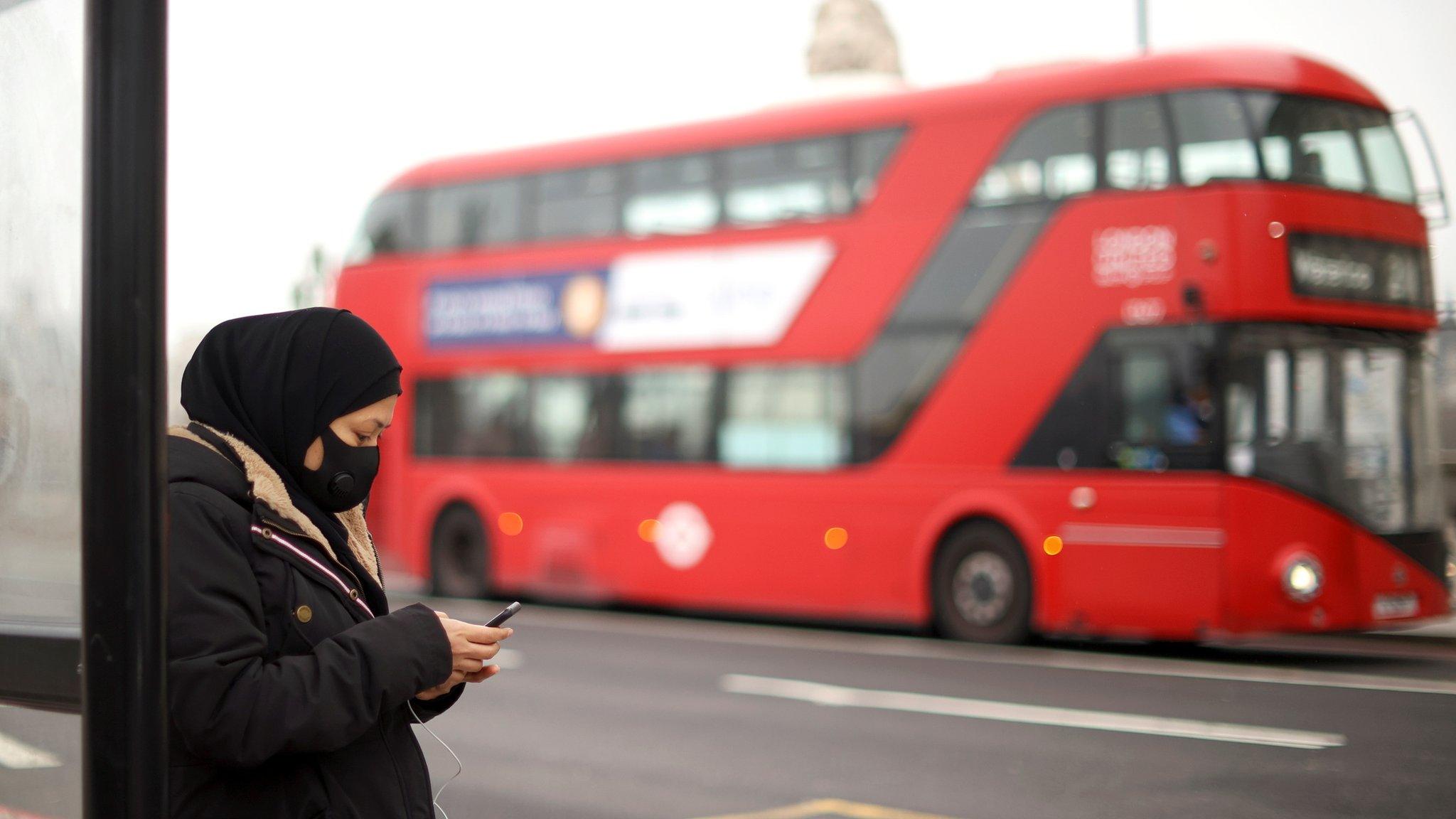Covid-19: Testing for coronavirus on London transport
- Published
- comments
Imperial College London is testing for coronavirus on London's transport network
It is just after 10:00 BST at Waterloo Tube station and a scientist from Imperial College London is swabbing the escalator.
A few commuters look curiously at a small cylindrical device on a tripod in the corridor.
It is a sensor and it is sucking in Tube air through a filter at 300 litres-per-minute and it runs for an hour.
After they have completed these tasks, the scientists gather their equipment and get on a train from Waterloo up to Euston.
They swab handrails and Oyster Card readers. They test the air on the Tube train and the buses at Euston.

Imperial College is re-testing London Underground for traces of coronavirus
These scientists are testing for coronavirus.
They want to find out if it is present on public transport and this is the second time they have done the examination.
Previously it came back with no traces of the virus.
But with levels of infection increasing in the community, they're trying to find out if that is still the case.

Imperial College use a sensor that tests 300 litres of air in the London Underground per minute
Transport for London (TfL) has increased its cleaning regimes.
And at the moment passengers in London are being told to reduce their journeys and travel at quieter times.
Research done by the RSSB (formerly Rail Safety and Standard Board) in July, found the chances of catching the virus on a train as 1 in 11,000.
This assumed a person was on a train, not wearing a mask with 44 passengers on an hour's journey, with one change of 22 passengers.
But it does say: "Since September, the infection rate in the community has increased and there has been a substantial increase in cases.
"This means the assumptions made and the numbers used in these calculations would be different, with an increase in the overall risk."

Wearing a mask is one of the ways TfL say that passengers can reduce the risk of spreading coronavirus on London transport
A German study found "little or no evidence" the disease has been triggered by long-distance train journeys.
The study by train operator Deutsche Bahn concluded: "We see remarkably few infections in trains.
"No infections occurred in persons on board with a stay of less than 10 hours.
"Not a single contact tracing has been identified in Germany and Austria as having been triggered by an infection on the train journey."
Yet there doesn't seem to be much research on underground services and buses, with their frequent stopping and changing of passengers.
TfL concedes it is not just a clean environment that will make transport safe. Other precautions like social distancing and mask wearing have to be done as well.
Passenger confidence
Paul McGovern, an occupational physician at TfL, said: "That's why it's one part of a series of things that we all must do when on public transport and when we're going about our day-to-day business."
Of course, passenger confidence is crucial.
If passengers are not confident safeguards are being adhered to - particularly around mask-wearing - they will not travel.
Others will prefer to walk or cycle or drive even though congestion is making that more difficult.
The results from the latest Imperial College research on the Tube and buses will be available in the next couple of weeks.
I'll put the results on my twitter feed: @bbctomedwards., external
- Published14 July 2020
- Published1 March 2021

- Published8 September 2020
